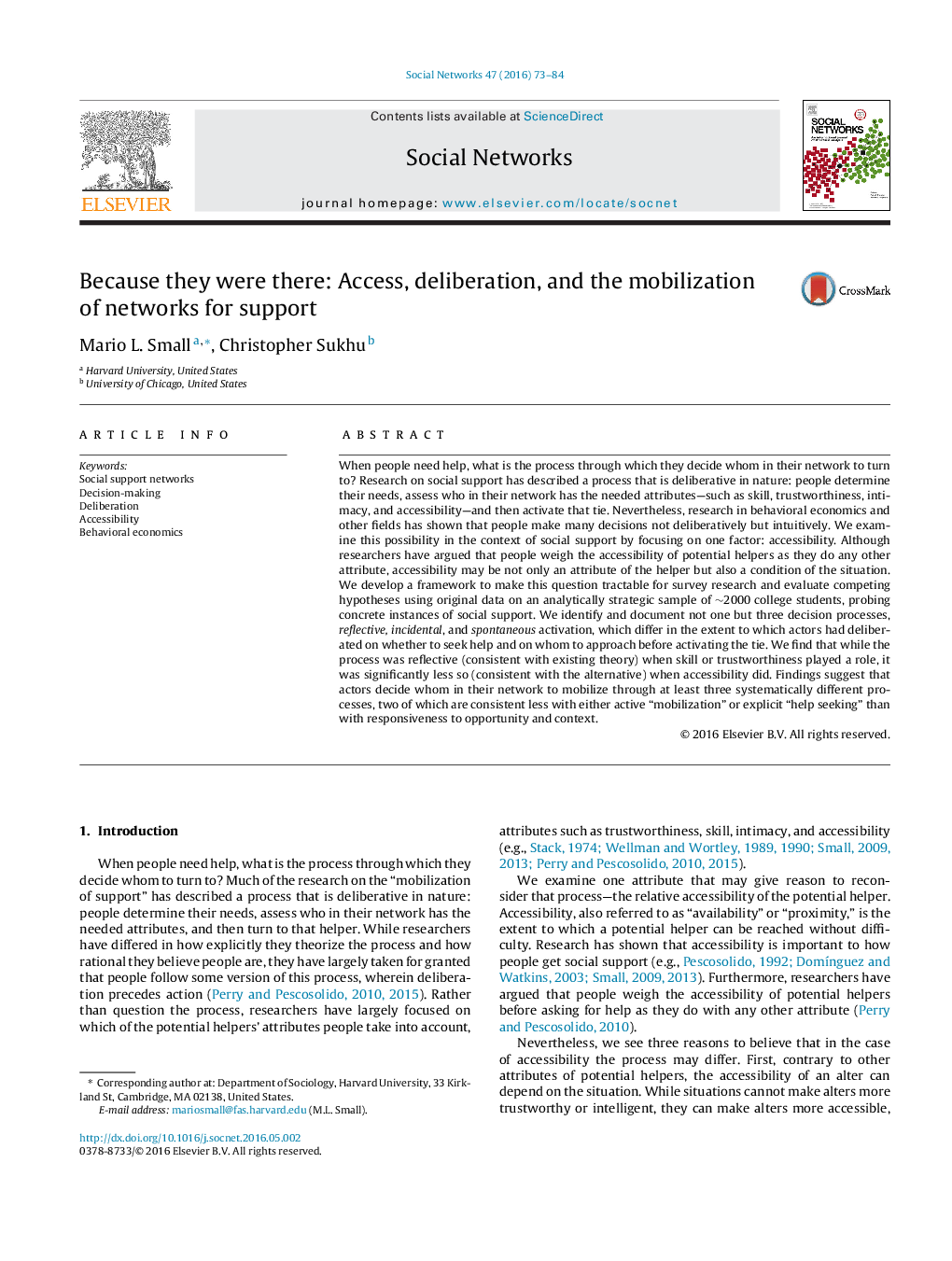| کد مقاله | کد نشریه | سال انتشار | مقاله انگلیسی | نسخه تمام متن |
|---|---|---|---|---|
| 7538410 | 1488852 | 2016 | 12 صفحه PDF | دانلود رایگان |
عنوان انگلیسی مقاله ISI
Because they were there: Access, deliberation, and the mobilization of networks for support
ترجمه فارسی عنوان
از آنجا که آنها آنجا بودند: دسترسی، مشورت و بسیج شبکه ها برای پشتیبانی
دانلود مقاله + سفارش ترجمه
دانلود مقاله ISI انگلیسی
رایگان برای ایرانیان
کلمات کلیدی
شبکه های پشتیبانی اجتماعی، تصمیم سازی، مذاکره، دسترسی، اقتصاد رفتاری،
موضوعات مرتبط
مهندسی و علوم پایه
ریاضیات
آمار و احتمال
چکیده انگلیسی
When people need help, what is the process through which they decide whom in their network to turn to? Research on social support has described a process that is deliberative in nature: people determine their needs, assess who in their network has the needed attributes-such as skill, trustworthiness, intimacy, and accessibility-and then activate that tie. Nevertheless, research in behavioral economics and other fields has shown that people make many decisions not deliberatively but intuitively. We examine this possibility in the context of social support by focusing on one factor: accessibility. Although researchers have argued that people weigh the accessibility of potential helpers as they do any other attribute, accessibility may be not only an attribute of the helper but also a condition of the situation. We develop a framework to make this question tractable for survey research and evaluate competing hypotheses using original data on an analytically strategic sample of â¼2000 college students, probing concrete instances of social support. We identify and document not one but three decision processes, reflective, incidental, and spontaneous activation, which differ in the extent to which actors had deliberated on whether to seek help and on whom to approach before activating the tie. We find that while the process was reflective (consistent with existing theory) when skill or trustworthiness played a role, it was significantly less so (consistent with the alternative) when accessibility did. Findings suggest that actors decide whom in their network to mobilize through at least three systematically different processes, two of which are consistent less with either active “mobilization” or explicit “help seeking” than with responsiveness to opportunity and context.
ناشر
Database: Elsevier - ScienceDirect (ساینس دایرکت)
Journal: Social Networks - Volume 47, October 2016, Pages 73-84
Journal: Social Networks - Volume 47, October 2016, Pages 73-84
نویسندگان
Mario L. Small, Christopher Sukhu,
